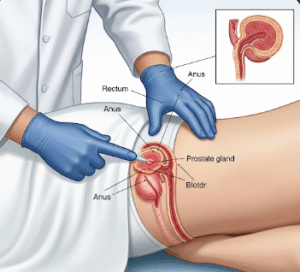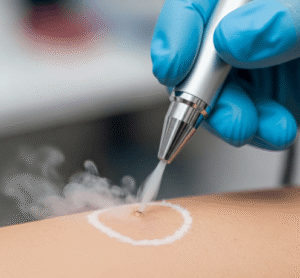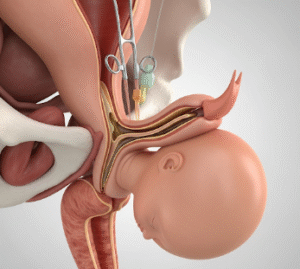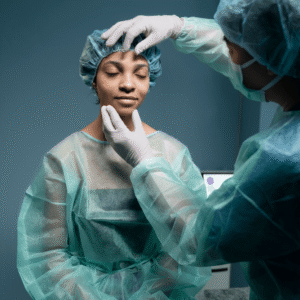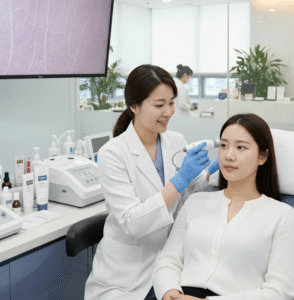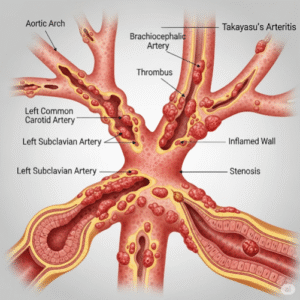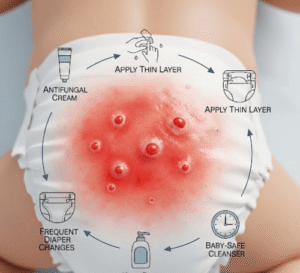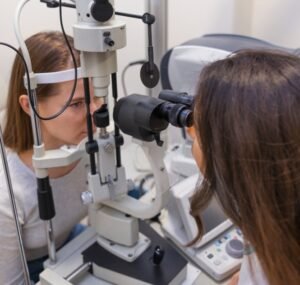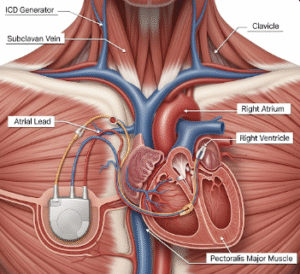Overview
A lost or changed sense of smell refers to the partial or complete inability to detect odors (anosmia) or a distortion of the sense of smell (dysosmia). This condition can significantly affect quality of life, impacting appetite, nutrition, and safety (such as detecting smoke or gas).
In Korea, ENT (ear, nose, and throat) specialists and neurology clinics provide comprehensive evaluation and treatment for smell disorders. Causes range from temporary issues like infections or allergies to chronic conditions or neurological disorders, making early assessment crucial for effective management.
Key Facts
- ➔ Loss or alteration of smell is medically known as anosmia (complete loss) or dysosmia (distorted sense).
- ➔ Commonly occurs with upper respiratory infections, sinus issues, or nasal obstructions.
- ➔ It can be temporary or permanent, depending on the underlying cause.
- ➔ Neurological conditions such as Parkinson’s disease, Alzheimer’s disease, or head trauma may lead to chronic smell loss.
- ➔ In Korea, specialized ENT and neurology clinics provide state-of-the-art testing, therapy, and follow-up for patients with smell disorders.
What is Lost or Changed Sense of Smell?
Lost or changed sense of smell involves disruption in the olfactory system, which includes the nose, olfactory nerves, and brain regions responsible for odor perception:
- ➔ Anosmia: Total loss of smell, making it difficult to detect everyday odors
- ➔ Hyposmia: Partial reduction in the ability to detect odors
- ➔ Parosmia: Distorted perception of odors, often unpleasant
- ➔ Phantosmia: Perception of smells that are not present
- ➔ Clinical significance: Loss or change of smell can indicate nasal obstruction, infection, neurological disorder, or environmental exposure, and may impact nutrition and safety
What Symptoms Are Related To
Smell disorders may be accompanied by:
- ➔ Loss of taste or altered taste perception
- ➔ Nasal congestion, runny nose, or sinus pressure
- ➔ Headaches or facial pressure in cases of sinusitis
- ➔ Neurological symptoms: Memory loss, tremors, or cognitive changes in neurodegenerative conditions
- ➔ Difficulty detecting dangerous odors such as smoke, gas, or spoiled food
- ➔ Emotional or psychological effects: Reduced appetite, depression, or anxiety due to altered sensory perception
Recognizing related symptoms helps identify the underlying cause and guide treatment.
What Causes / Possible Causes
Loss or change in smell can occur due to various conditions affecting the olfactory system:
- ➔ Upper respiratory infections: Viral infections like common cold, flu, or COVID-19
- ➔ Sinus and nasal problems: Nasal polyps, chronic sinusitis, or allergies
- ➔ Head trauma: Damage to the olfactory nerves from accidents
- ➔ Neurological disorders: Parkinson’s disease, Alzheimer’s disease, multiple sclerosis
- ➔ Aging: Gradual decline in olfactory function with age
- ➔ Medications or toxins: Certain antibiotics, antihypertensives, or exposure to chemicals
- ➔ Congenital conditions: Rare genetic causes affecting olfactory nerve development
Identifying the cause is critical to determine whether the condition is reversible or requires long-term management.
When Should I See My Doctor
Seek evaluation if you experience:
- ➔ Sudden or persistent loss of smell
- ➔ Changes in smell that affect taste or appetite
- ➔ Associated nasal symptoms like congestion, polyps, or recurrent sinus infections
- ➔ Neurological symptoms such as tremors, memory issues, or cognitive decline
- ➔ Loss of smell after head trauma or infection
- ➔ Difficulty detecting hazards such as smoke, gas leaks, or spoiled food
Early consultation allows timely diagnosis and treatment, preventing long-term complications.
Care and Treatment
Management of lost or changed sense of smell depends on the underlying cause:
- ➔ Treat underlying infections or sinus problems: Antibiotics, nasal sprays, or sinus surgery for obstruction
- ➔ Allergy management: Antihistamines or corticosteroid nasal sprays to reduce inflammation
- ➔ Olfactory training: Systematic exposure to different scents to help restore function
- ➔ Medication review: Adjusting or changing medications that may impair smell
- ➔ Nutritional support: Ensuring adequate nutrition despite altered taste or smell
- ➔ Neurological management: Monitoring and treatment for underlying neurodegenerative disorders
- ➔ Lifestyle modifications: Using smoke and gas detectors to compensate for sensory loss
Early intervention increases the likelihood of partial or full recovery, especially in reversible causes like post-viral anosmia.
Treatment Options in Korea
Korean hospitals offer specialized diagnostic and therapeutic services for smell disorders:
- ➔ Diagnostic evaluations: Olfactory testing, nasal endoscopy, CT or MRI scans to assess nasal and brain structures
- ➔ Specialist consultations: ENT specialists, neurologists, and rehabilitation physicians
- ➔ Medical therapy: Nasal corticosteroids, antibiotics, or antiviral medications depending on cause
- ➔ Olfactory training programs: Structured smell exercises to improve recovery
- ➔ Surgical interventions: Removal of nasal polyps or correction of structural abnormalities
- ➔ Integrated multidisciplinary care: For patients with neurodegenerative disease or chronic sinusitis
- ➔ Leading hospitals: Seoul National University Hospital, Asan Medical Center, and Samsung Medical Center provide state-of-the-art diagnostics, therapy, and follow-up, ensuring optimal recovery
In Summary: Loss or change of smell is a common but sometimes serious condition that can affect nutrition, safety, and quality of life. Timely assessment and treatment in Korea can identify reversible causes, manage chronic conditions, and improve sensory function.
- ➔ Key Takeaway: Persistent anosmia or dysosmia should be evaluated promptly to prevent complications and improve quality of life.
- ➔ Action Point: Consult ENT or neurology specialists for accurate diagnosis, therapy, and olfactory rehabilitation.


